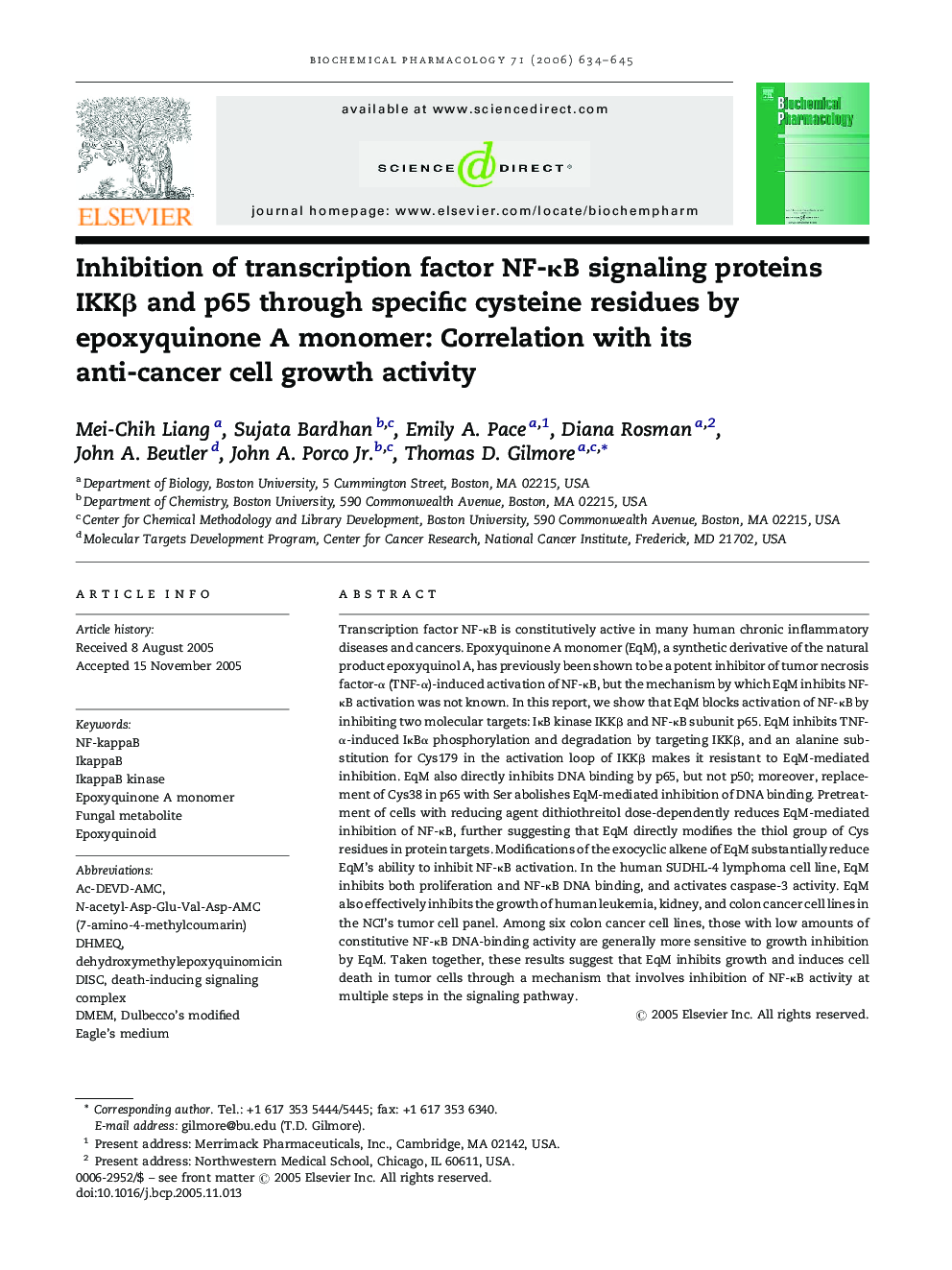| کد مقاله | کد نشریه | سال انتشار | مقاله انگلیسی | نسخه تمام متن |
|---|---|---|---|---|
| 2515342 | 1118513 | 2006 | 12 صفحه PDF | دانلود رایگان |

Transcription factor NF-κB is constitutively active in many human chronic inflammatory diseases and cancers. Epoxyquinone A monomer (EqM), a synthetic derivative of the natural product epoxyquinol A, has previously been shown to be a potent inhibitor of tumor necrosis factor-α (TNF-α)-induced activation of NF-κB, but the mechanism by which EqM inhibits NF-κB activation was not known. In this report, we show that EqM blocks activation of NF-κB by inhibiting two molecular targets: IκB kinase IKKβ and NF-κB subunit p65. EqM inhibits TNF-α-induced IκBα phosphorylation and degradation by targeting IKKβ, and an alanine substitution for Cys179 in the activation loop of IKKβ makes it resistant to EqM-mediated inhibition. EqM also directly inhibits DNA binding by p65, but not p50; moreover, replacement of Cys38 in p65 with Ser abolishes EqM-mediated inhibition of DNA binding. Pretreatment of cells with reducing agent dithiothreitol dose-dependently reduces EqM-mediated inhibition of NF-κB, further suggesting that EqM directly modifies the thiol group of Cys residues in protein targets. Modifications of the exocyclic alkene of EqM substantially reduce EqM's ability to inhibit NF-κB activation. In the human SUDHL-4 lymphoma cell line, EqM inhibits both proliferation and NF-κB DNA binding, and activates caspase-3 activity. EqM also effectively inhibits the growth of human leukemia, kidney, and colon cancer cell lines in the NCI's tumor cell panel. Among six colon cancer cell lines, those with low amounts of constitutive NF-κB DNA-binding activity are generally more sensitive to growth inhibition by EqM. Taken together, these results suggest that EqM inhibits growth and induces cell death in tumor cells through a mechanism that involves inhibition of NF-κB activity at multiple steps in the signaling pathway.
Journal: Biochemical Pharmacology - Volume 71, Issue 5, 28 February 2006, Pages 634–645